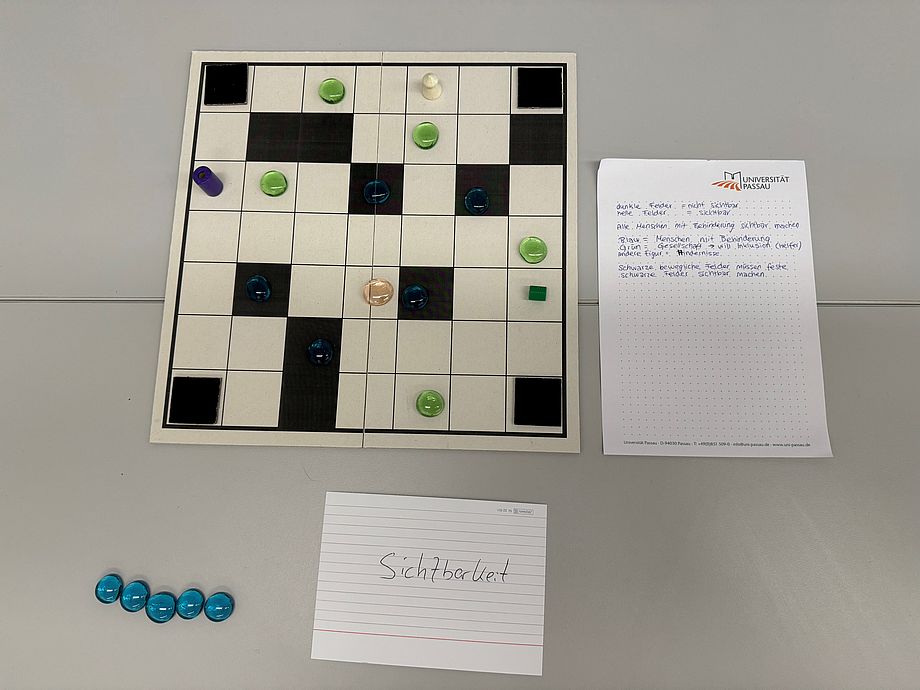DFG project EEEM: Playful reflection on the perception of disability in film and theatre

What biases do we hold when we see actors with a disability in film or theatre? To confront us with the image we have of people with a disability, the DFG project EEEM will develop an interactive online game.
When we go to the cinema or theatre, we hardly leave our notions and expectations in the cloakroom – we carry them with us into the auditorium. The research project "Narration, expectation, experience of possibilities" has set out to develop a companion "appreciation training" for works that feature people who have what is called a "cognitive" disability. The project's highlight is a game that will be posted on the blog account of the umbrella project "Images of Disability" and aims to encourage reflection on what we see.
"Our goal is to provoke thought without moralising. It is a balancing act between our learning objective of breaking down prejudices and the goal of allowing viewers to have their own experiences," explains Susanne Hartwig, Professor of Romance Literatures and Cultures at the University of Passau who heads the project. The game is made up of several parts. The point is for players to solve tasks while familiarising themselves with basic concepts of disability studies, analysing film scenes, and thinking about alternative plots to the story. In the end, the players are asked to reflect on their own experiences as viewers. The game will be suited for students attending seminars at universities and educational institutions but can also be played by anyone motivated to learn more about their own notions of "cognitive" disability.
In taking this approach, the project is blazing new trails in science communication. It is an attempt to present research not through texts but through play using several different channels. The blog builds on the results of the predecessor project "Narration, expectation, experience. Disability in contemporary European theatre and film" (2020-2023), which was likewise funded by the German Research Foundation (DFG). In it, researchers had analysed theatre performances and films from different European countries featuring actors with a "cognitive" disability and sought to answer three questions: (1) what narrations include people with a disability; (2) what expectations do we have of the actors or when are these shattered; and, finally, (3) what are our experiences as recipients. The results of the preliminary inquiry are now being used in the follow-on project EEEM. The game's educational objective is specifically to propose ways of reading theatre performances and films and thus to inspire new notions of disability.
The researchers designed the educational game in collaboration with the game developer Playing History. The entire process is being accompanied by theoretical debates on game-based learning and the role of theatre/film interpretation in facilitating innovative notions of disability. The research project EEEM is funded by a one-year grant awarded by the German Research Foundation (DFG).
| Principal Investigator(s) at the University | Prof. Dr. Susanne Hartwig (Lehrstuhl für Romanische Literaturen und Kulturen) |
|---|---|
| Source of funding |  DFG - Deutsche Forschungsgemeinschaft > DFG - Sachbeihilfe |

